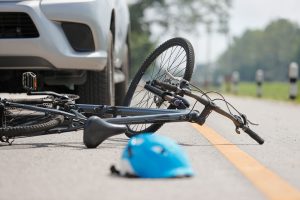Employer Liability for Fort Myers Car Accidents Involving Working Drivers
 There are a number of situations where employers in Florida can be held legally responsible for the damage caused by negligent employees – even if the employer didn’t directly cause the damage. This is what is referred to in civil injury law under the concepts of “vicarious liability” and “respondeat superior”. Essentially, it’s an imputed liability for the actions of a subordinate third party, typically an employee or child. It usually comes down to the level of control the supervisory party has over the negligent party.
There are a number of situations where employers in Florida can be held legally responsible for the damage caused by negligent employees – even if the employer didn’t directly cause the damage. This is what is referred to in civil injury law under the concepts of “vicarious liability” and “respondeat superior”. Essentially, it’s an imputed liability for the actions of a subordinate third party, typically an employee or child. It usually comes down to the level of control the supervisory party has over the negligent party.
Vicarious liability comes up a fair amount in Fort Myers car accidents that involve working drivers. Usually, a company isn’t responsible for crashes that occur during a worker’s commute to-and-from work. However, if the crash occurred while the employee was acting in the course and scope of employment (i.e., making a delivery, running a work errand, going from one job site to the other, etc.), the employer can be held vicariously liable. (Specifically with respect to employers, there is a legal doctrine known as “respondeat superior,” which is Latin for, “let the master answer.”)
Also in Florida, vehicle owners can be held vicariously liable without any need to prove direct negligence. That’s because long-standing legal precedent in Florida considers motor vehicles to be inherently dangerous instrumentalities. If a vehicle owner entrusts someone else to operate a vehicle they own, the owner can be held vicariously liable for the negligent operation of it that leads to someone else getting hurt. So, in Fort Myers car accidents that involve someone using a company vehicle – even if they weren’t technically on the job – the employer might be held legally responsible as the vehicle owner.
In a recent crash case before Florida’s 4th District Court of Appeals, the question was whether claims of direct negligence against two supervisors of an allegedly negligent employee driver were valid. According to the written opinion in Jones v. Vasilias et al., the underlying action arose from injuries sustained by the plaintiff when he was riding his bicycle along a busy street in front of an auto dealership in Palm Beach County. Just as he passed the driveway, an employee of the dealership was leaving in a van to make a delivery. The two collided.
The dealership admitted ownership of the van and the fact that the employee had been acting in the course and scope of employment when the crash occurred.
In the subsequent personal injury lawsuit, the plaintiff asserted claims against:
- The employee for negligent driving.
- The dealership for vicarious liability – of both the driving employee and of the managers overseeing him.
- The general manager and service manager for direct liability. Specifically, they were accused of negligent training, retention, supervision, and vehicle entrustment.

The managers moved for dismissal of claims against them for failure to state a cause of action. Specifically, they argued that because the dealership had already admitted vicarious liability for the negligent driver, there was no independent cause of action for the claim against them. Further, they insisted a key element of a claim against them would be proof that the supervisors committed a tort outside their employment, which was not alleged. The employer also moved to dismiss the vicarious liability complaint against it where it pertained to the supervisors. If the direct negligence claim against the supervisors couldn’t stand, neither could the vicarious liability claim that stemmed from it.
The injured bicyclist said claims of negligent employment/vicarious liability against the supervisors/employer were going to be pursued as separate and distinct from the claims against the negligent driver/employer.
The trial court sided with the defense, dismissing claims against both supervisors and the vicarious liability claim attached to that. In its decision, the court cited earlier case law that struck causes of action for negligent supervision and retention when the employer admitted the negligent employee was acting in the course and scope of his/her job duties. Further, claims of negligent hiring and retention, the court held, require ats outside the scope of employment.
This reasoning did not hold water with the appellate court. In its reversal in the injured bicyclist’s favor, justices with the Fla. 4th DCA held the trial court misapplied case law. In the older case, which also involved an injured motorist struck by a negligent working driver, the plaintiff didn’t allege any direct negligence by the employer. Vicarious liability was the sole allegation, and in that matter was redundant because it involved two allegations of vicarious liability for the acts of the same driver. That’s distinct from this case, where vicarious liability is alleged not only for the negligence of the working driver but also the negligence of his supervisors.
Justices further reiterated that there is well-established case law stating that individual officers and agents of a corporation can be held personally liable for negligence – even if such acts were committed in the scope of their employment or as corporate officers. Here, although the supervisors weren’t in or around the van at the time of the crash, the plaintiff alleged they had committed a wrongful act by allowing the driver to leave “under circumstances demonstrating he was unfit to do so.”
As stated above the dismissal was reversed, and the case remanded back to the trial court for further proceedings.
This case underscores the importance of working with a South Florida personal injury lawyer who is highly skilled and experienced and understands every possible avenue for financial recovery in the wake of a serious crash; especially one caused by a driver who may be on the clock or otherwise driving as part of his or her job or even in a company truck or other vehicle.
If you are injured in Fort Myers, Port Charlotte, Sarasota, Cape Coral, Naples, or Key West, contact Garvin Injury Law at 800.977.7017 for a free consultation.
Additional Resources:
Jones v. Vasilias et al., March 15, 2023, Florida’s 4th District Court of Appeal
More Blog Entries:
Fort Myers Personal Injury Lawyer Insight for Tourists in Florida Car Accidents, May 2, 2023, Fort Myers Car Accidents Blog





 Florida Personal Injury Lawyer Blog
Florida Personal Injury Lawyer Blog










